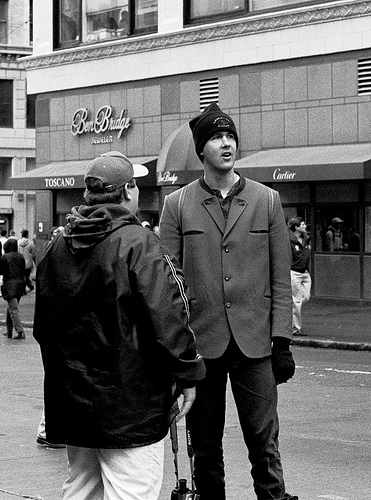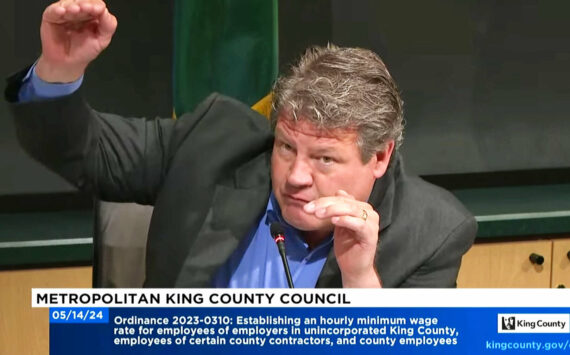You Can’t Blow Up a Social Relationship is an anarchist pamphlet first published in 1979. The point of the treatise is that meaningful work, through association, is a greater tool for change than violence, which only invites authorities to constrict civil liberties. After reading the assertions in the pamphlet, two events came to mind: the November 1999 World Trade Organization ministerial meeting in Seattle, and the September 11, 2001 terrorist attacks in the United States.
I was on the street in Seattle in ’99. There was a big march planned and many people came from all over to express their feelings about the WTO. A lot of people put time into creative forms of expression: costumes, props, and street performances. I was part of a musical performance at the Showbox.
During the first day, it was interesting and fun to see how people tried to make statements. Later, I noticed a change—the mood got darker with more graffiti and broken windows. I came across a person spray-painting some forgettable slogan while standing atop a storefront awning. I couldn’t help myself but to yell, “How would you like if someone did that to your house?” He replied, “Fuck you,” as did the couple with indignant faces standing next to me. I said, “I thought this was a nonviolent protest?” I split for home because this scene was going downhill fast. I was in a vacuum of chaos. And this leads us to another premise quoted in the pamphlet: “The total collapse of this society would provide no guarantee of what would replace it.”
The mob, as far as that moment was concerned, condoned free expression in the form of cliche statements written with aerosol paint. But a question regarding personal property could only merit a curt response of profanity. Tear gas fired from riot-police cordons wasn’t the only thing wafting through the air. The protests grew polluted with a spurious revolutionary fervor. The effects of spontaneous and irrational instant gratification became the media story while nonviolent, long-planned creative expression took a back seat.
The killers who hijacked the aircraft on September 11, 2001 created a ghastly spectacle replayed over and over on television. The Bush administration took advantage of people’s genuine moral outrage. Presidential speeches were dependably laden with the terms terror, terrorist, and terrorism. This sustained a climate of fear and nationalist hysteria quickly manipulated into legislation that expanded the state security apparatus. The administration benefited so much politically that some accused them of conspiring in the attacks themselves. I don’t believe there was complicity, but the irony is not lost that the anti-American attackers only succeeded in helping a reactionary president.
Indeed, you can’t blow up a social relationship. Meaningful change takes a lot of time and patience. Where are those spray-painting vandals today? I hope they’re working to build structures of cooperation that meet the needs of the local community.





